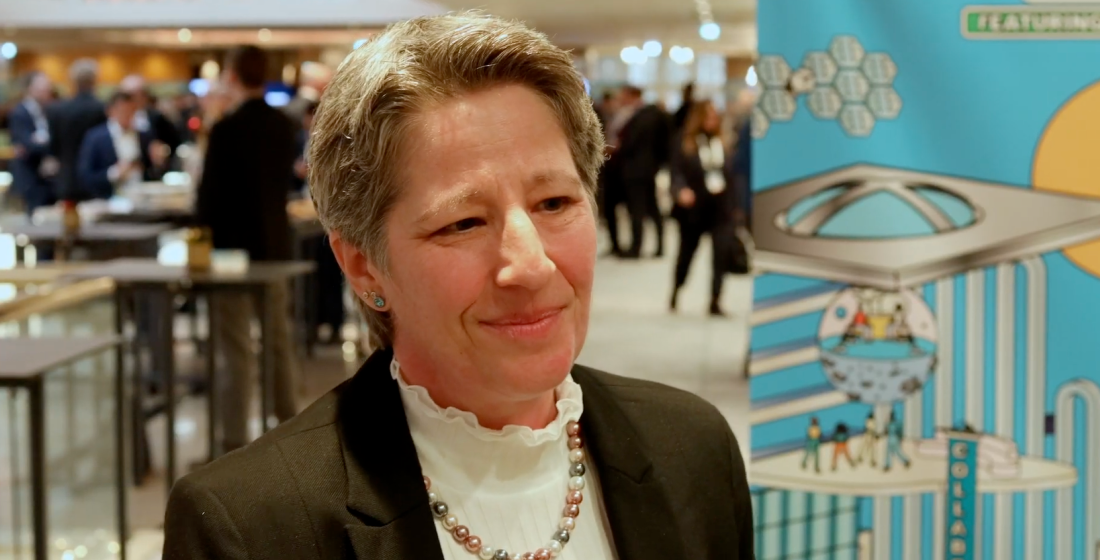Ameropa and Nitron chase payment amid default on Ghana fertilizer deal
Two of the world’s largest fertilizer suppliers are chasing an almost $10 million default from a global reinsurer, in a case that illuminates the perils of using financial guarantees to support trade, instead of traditional LCs.

In the first half of 2020, US-based commodity trader Nitron Group and Swiss agricultural commodity supplier Ameropa sold around 34,000 tonnes of fertilizer to a newly formed Lebanese entity called Sustainable Trading (ST), for delivery to Ghana. ST received the goods, and although it has paid some of the $8.6 million principal, most of the payment remains in default.
The goods were shipped to Ghana on three vessels - ES Venus, African Ibis and Unisky - between March and July 2020 and the fertilizer was successfully delivered to local buyers.
Nitron and Ameropa turned to Cayman Island reinsurer Barents Re, and both suppliers were issued financial guarantees (one was issued on 8 June 2020), promising to pay Nitron and Ameropa in the event of a default by ST.
Barents Re and ST share a common ownership via Lebanese insurance tycoon Jean Claude Chalhoub. Henri Junior Chalhoub, Chalhoub’s son, is also involved in Barents, UK Companies House records indicate. Michel Hamam, who TXF understand from the suppliers of ST is an old friend of Chalhoub senior, is the CEO of ST. Furthermore, the same lawyers are being instructed by both Barents and ST to deal with proceedings. Hamam refused to comment.
TXF understands from trading partners that ST was unable to get a bank LC for the fertilizer export deal to Ghana and Nitron was wary of entering into a transaction with a counterparty that was backed by a financial guarantee, rather than by a traditional bank LC - but were convinced to do so based on the quality of Barents Re's balance sheet. And a reported rating card supplied by Hamam.
The Barents Re performance guarantee was put together by Dentons, and allowed ST to leverage the balance sheet of the reinsurer and the rating. Dentons acted for the insurer, and Chalhoub personally negotiated the matter on behalf of ST and Barents Re. In an email sent by Hamam to suppliers, he states: “ST is part of the Barents insurance group, a multi-billion enterprise that operates globally.”
Barents Re: an insurer or lender?
Barents Re has an A (excellent) financial strength rating from AM Best, a key provider of credit ratings to insurers. Other insurers with an A rating from AM Best include the likes of AIG and Aviva. But in a document seen by TXF, and written by Hamam as CEO of ST, he claimed ST was part of the Barents insurance group, and then provided documents related to Barents.
One of these documents - an external credit assessment headed as a European Central Bank (ECB) financial institution credit rating card - represents Barents with an AM Best financial strength rating as equivalent to a bank S&P/Moody’s rating. Therefore, TXF can deduce that this document was provided to ST by Barents, or Challoub and Hamam to obtain credit.
However, TXF has checked with the ECB, and the bank confirmed it does not provide credit rating cards. TXF has also seen emails sent to the suppliers, written by Hamam, where he circulated this rating card, and named it as an ECB document.
Arbitration(s)
The dispute between Ameropa and Nitron, and the Lebanese firm has led to two separate arbitration processes at the International Chamber of Commerce (ICC) in Paris. According to arbitration documents reviewed by TXF, an attempt by ST and Barents Re to claim that irregularities in documents involving third parties meant Ameropa could not be paid for the goods and the application to join the third parties to the proceedings was rejected by the ICC arbitrator.
A separate arbitration proceeding is also underway between Nitron on the one hand and ST on the other, the status of which is not clear. Sources indicate that Barents Re is using the same legal counsel as ST, and has attempted to argue that the guarantees were not binding based on the documentation flaw rather than non-delivery. On 19 March, Amerpoa made a claim in the High Court in London against Barents Re for $3.7 million, outside of the ICC proceedings, for non-performance.
TXF understands ST was forced to use a financial guarantee from an associated company, from what Hamam’s claims is part of the Barents group, rather than using a bank LC to support the transaction, because the trader was unable to get a credit line from a traditional lender.
It is unclear whether the ongoing Lebanese financial crisis impacted the Chalhoub family, which has business in the Middle Eastern country.
In January 2020, Nitron securitized $200 million of receivables with the help of a Greensill subsidiary, Finacity. It is not known if the ST transaction was part of the portfolio of receivables packaged up and sold to external investors. Finacity was acquired by Greensill in 2019, but since the collapse of the Greensill the securitisation unit has been taken over by White Oak, a private equity firm.
It is important to note, Barents Re do not underwrite trade credit insurance policies, which are typically written either on a whole turnover trade credit basis, where a client’s entire portfolio of receivables is insured against default risk, or on a single transaction basis in the structured trade credit and political risk market.
Major insurers do on occasion underwrite financial guarantee business. However, an A rated insurer using its own balance sheet to help a related party proceed with a commodity trade is a highly unusual approach.
So, why would Barents Re give a corporate guarantee against ST, an offshore Lebanese shell company with no record, or filing, and no balance sheet or equity commitments from what TXF could find? In short, TXF have searched to find a contract between ST and Barents for this financial guarantee, and as of yet, none of our sources have confirmed the existence of such a document.
Barents Re in profile
Barents Re is an international reinsurer with a low profile that belies the firm’s global footprint. Founded in 1996, the carrier has operations that extend from Miami to Beirut, via Latin America and Europe, writing reinsurance in 72 countries.
Company founder Gerardo Garcia is chairman of the business, and a part owner, but Lebanese businessman Jean Claude Chalhoub exerts a powerful influence over the company and its operations, insurance sources have told TXF, especially the underwriting team. Chalhoub operates from Barents’ offices and writes from a Barents Re email address and negotiates on behalf of ST and Barents.
Barents Re’s ownership structure is opaque - no shareholder details are provided in the reinsurer’s 47-page annual report. But four sources have separately confirmed that the company is half owned by the Chalhoub family, with the remaining equity split between Garcia and external investors.
Jean Claude’s son Henri Junior Chalhoub has held roles at Barents Re, including as a director of the company's subsidiaries in the UK and Luxembourg. And TXF understands Chalhoub junior also has extensive other interests that are being investigated.
The Chalhoub’s also run a number of other insurance businesses, including a broking business that trades under the brand name Risk. Risk lost a High Court battle with German reinsurer R+V Versicherung in 2007, and was ordered to pay £14 million. The case involved an executive at the R+V who was found to have conspired with Chalhoub senior to alter the firm’s underwriting agreement in a way that was financially advantageous to Risk. This was found to be a conspiracy.
Likewise, Belgian press also revealed that Chaloub is instrumental in a public battle with ex-friends who are making various claims against him. Barents Re grew exponentially in 2020, according to the company’s annual report, audited by Deloitte, with the firm’s gross written premiums jumping 66% in 2020 to $386 million. The carrier paid $263 million in claims last year and total profits rose 48% over the period to $29.5 million .
The annual report does not directly mention Sustainable Trading or other Chalhoub family entities such as Risk, but the document does allude to a wider network of businesses.
“The company is part of a group of related companies that have significant transactions among them,” the document notes. “Accounts receivable and payable with related companies do not have a scheduled repayment date, maturity date, nor do they accrue interest”.





